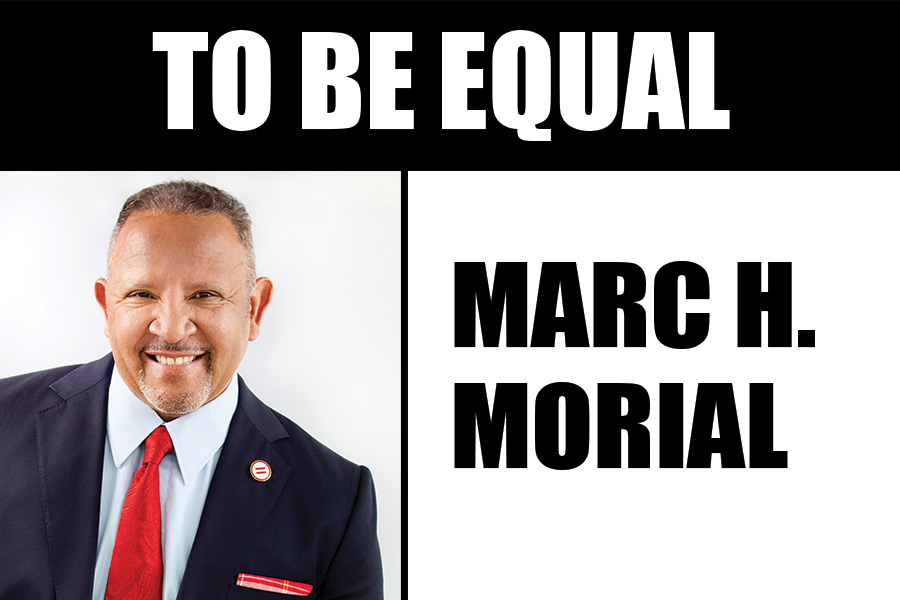Getty Images Stock Photo
by Marc Morial
(TriceEdneyWire.com)—“We have more tools than ever to protect against serious COVID-19 disease and death, but we must make sure everyone has equitable access to those tools.”—CDC Director Mandy Cohen
COVID-19 vaccines prevented an estimated 18 million hospitalizations and more than 3 million deaths in the United States, while saving about $1.5 trillion in medical costs in the first two years after they were introduced.
The nation’s vaccination strategy, aimed to quickly deliver safe and effective COVID-19 vaccines, achieved remarkable success by vaccinating 270 million Americans within the first two and a half years after its approval. This accomplishment was largely attributed to the fact that anyone could receive a vaccine at no cost, regardless of their insurance status.
More than 40 Urban League affiliates across the country supported this effort by partnering with community health clinics, hospital systems, local pharmacies and health departments to bring the vaccines directly to community members. They established pop-up vaccine clinics in Urban League offices, churches, schools, community centers, housing complexes, senior centers, local colleges and universities, farmers markets and street fairs to ensure their communities had reliable and convenient access to the vaccines. In total, Urban League affiliates hosted more than 850 vaccine events and clinics, administering more than 120,000 vaccine doses to community members.

However, after the public health emergency ended in the spring of 2023, the federal government stopped purchasing and distributing the vaccines for free to individuals. Although most uninsured and underinsured Americans remain eligible for free vaccines, many are unaware of how to access them. Consequently, many have delayed getting their updated COVID shots out of fear of being charged, leaving the most vulnerable Americans unprotected amid the current surge of COVID-19 cases this winter.
Most adults are able to receive the COVID vaccine at no cost through their private insurance, Medicare or Medicaid plans.
However, there are still between 25 million and 30 million adults without health insurance, and additional adults whose insurance does not cover all vaccine costs. Paying out-of-pocket for the updated COVID vaccine is a significant burden for most uninsured adults, who are disproportionately low income and people of color. Given they are often in poorer health compared to those who are insured, they are even more vulnerable to serious illness and death from COVID-19 infection. People of color are also disproportionately experiencing long-term symptoms and health problems following a COVID-19 infection, a condition known as Long COVID. Long COVID does not affect everyone the same way, but common symptoms include fatigue, fever, cough, headache, chest pain and shortness of breath for weeks, months or years after COVID-19 illness. Long COVID has disrupted many lives and is keeping as many as million people out of work in the U.S.
Anticipating this crisis, the Department of Health and Human Services created a public-private partnership called the Bridge Access Program to ensure continued access to COVID-19 vaccines. Bridge Access provides free COVID-19 vaccines to adults without health insurance and adults whose insurance does not cover all COVID-19 vaccine costs. Bridge Access providers include Walgreens, CVS, and pharmacies in the eTrueNorth network; select local healthcare providers; and HRSA-supported Health Centers.
To find an approved Bridge Access provider:
- Go to vaccines.gov, enter your zip code, select the vaccine you prefer, and check the Bridge Access Program participant box.
- Select your preferred location and make your appointment.
- When you arrive for your appointment, confirm that your vaccine should be covered under the CDC’s Bridge Access Program based on your insurance status.
The availability of free COVID-19 vaccinations through the CDC’s Bridge Access Program is critical as we navigate the ongoing challenges posed by COVID-19. By getting vaccinated, we can protect ourselves and the health of our entire community—especially the most vulnerable among us.